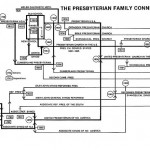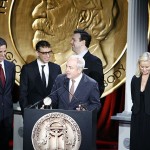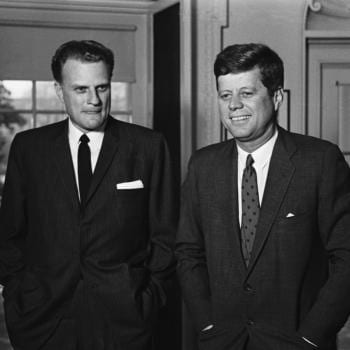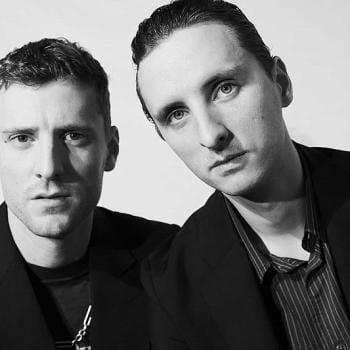So why does Dwight Longenecker think that his appeal to 2000 years of church teaching will net more coherence than Protestants who appeal to the Bible only?
As soon as you get involved in these Bible gunfights you realize that the exchange of Bible verse proof texts accomplishes very little. That’s because the Protestant (despite his protests to the contrary) does not actually believe in his favorite doctrine of sola Scriptura (Scripture alone). He reads the Scriptures through his denominational doctrinal lens. He reads the Scripture backed up by his Bible commentaries, denominational assumptions, denominational education, context and background.
Catholics do this too; we just admit it. We never claimed to believe in sola Scriptura in the first place. Catholics have always relied on the Apostolic authority of the Body of Christ — the Church to provide the interpretative authority to rightly read Scripture. . . .
I explain that Catholics are not Bible-only Christians, that we look to the Church to give us the reliable interpretation of the Bible, and that these interpretations are rooted in 2,000 years of study, prayer, obedience and faith from Christians in every age and across the globe.
Imagine that. Before you try to master all 66 books of the Bible, you also need to reflect on 2,000 years of writings. That doesn’t yield one system of doctrine. It nets even more opinions than Protestants trying to arrive at one interpretation of the Bible.
Maybe all that material to master explains why Roman Catholics are so divided. Heck, even the bishops and cardinals had a bit of a struggle with marriage:
One of the most common takeaways from Synod 2015 is that it revealed deep “divisions” within the Catholic Church. While I will suggest that “divisions” is too strong a word, no one can deny that Synod 2015 demonstrated the existence of strong theological tensions within the body of Catholic bishops, and that this in turn points to disturbingly pronounced and conflicting conceptions within the Catholic faithful of what Catholic belief and practice is or ought to be. What did the evident tensions at Synod 2015 mean for the Church? What does the reality of ever more diverse and conflictive creedal alignments among the baptized mean, particularly for the Church in the US? Herewith, I offer some thoughts on both questions. . . .
[W]e can say here that we have come with some confidence to believe that a significant part of Christianity in the United States is actually only tenuously Christian in any sense that is seriously connected to the actual historical Christian tradition, but has rather substantially morphed into Christianity’s misbegotten step-cousin, Christian Moralistic Therapeutic Deism. This has happened in the minds and hearts of many individual believers, and, it also appears, within the structures of at least some Christian organizations and institutions. The language, and therefore experience, of Trinity, holiness, sin, grace, justification, sanctification, church, Eucharist, and heaven and hell appear… to be supplanted by the language of happiness, niceness, and an earned heavenly reward. It is not so much that U.S. Christianity is being secularized. Rather, more subtly, Christianity is either degenerating into a pathetic version of itself or, more significantly, Christianity is actively being colonized and displaced by a quite different religious faith.
Now, replace “Christianity” with “Catholicism” and “Christian” with “Catholic” in that paragraph, and I would suggest this describes the essential creed of thousands of American Catholics.
So why does Father Dwight gloat? Why doesn’t he lament?












